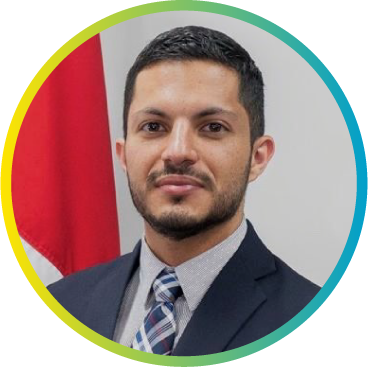Second meeting of RedCuidar+
Seleccione cualquier filtro y pulse Aplicar para ver los resultados
RELATED DOCUMENTS
RELATED LINKS

ABOUT THIS WEBINAR
At the second meeting of RedCuidar+, held on 13 November 2020, there was a debate on how to increase the supply of dependency care services, both through diversification (residences, day centres, home care, teleassistance services, family support, etc.) and through the involvement of other actors (private sector , non-profit organizations, local communities, etc.). It was based on the concrete experience that some countries in the region (Costa Rica and Chile) and the European Union (Italy) and generated an exchange space where participants were able to delve into the experiences presented.
Agenda:
00:00 - OPENING
09:00 - TOWARDS BUILDING A CARE POLICY IN COSTA RICA: CHALLENGES AND SUCCESSES IN COORDINATING THE SUPPLY OF SERVICES
Francisco Delgado Jiménez, Vice-minister, Instituto Mixto de Ayuda Social [Mixed Social Assistance Institute], Costa Rica.
29:00 - PUBLIC LONG-TERM CARE PROGRAMS AND SERVICES IN CHILE
Mónica Cristina Gamín Guzmán, Head of the Department of Operations of the Social Protection and Promotion Division of the Ministerio de Desarrollo Social [Ministry of Social Development], Chile.
57:28 - LESSONS LEARNED FROM THE EUROPEAN EXPERIENCE IN LTC SERVICES
Emmanuele Pavolini, Italian expert on well-being and care and professor at the University of Macerata, Italy.
01:15 - DISCUSSION SESSION
01:54 - NEXT STEPS AND CLOSING REMARKS
Learn more about RedCuidar+: iadb.org/en/panorama/redcuidar
MODERATOR
PANELIST

Francisco Delgado is Vice Minister of Human Development and Social Inclusion of Costa Rica. He holds a Master's degree in Public Administration in International Development from Harvard University and a bachelor's degree in Economics from the University of Costa Rica. He has worked as a social policy economist in Costa Rica at the Joint Aid Institute and the Social Development and Family Allowances Fund. Deputy Minister Delgado has published academic research on poverty, inequality and the labour market, and has taught at the School of Economics of the University of Costa Rica.

Anthropologist and Master in Rural Development of the Universidad Austral de Chile, Diploma in Social Management and Public Policies, Latin American Faculty of Flacso Social Sciences -Chile and Diploma in Social Protection for Cohesive Societies. Faculty of Economics and Business, University of Chile (Eurosocial Convention). She currently serves as Head of the Operations Department of the Division of Promotion and Social Protection, undersecretary of social services of the Ministry of Social Development and Family, and member of the design and implementation team of the National Support and Care System of which she has been coordinator for 3 years.

Emmanuele Pavolini is Full Professor in Economic Sociology and Social Policy at the University of Macerata (Italy). As an economic sociologist he has focused his research interests in two fields: a) welfare state studies from a comparative perspective, with specific attention to the Italian and Southern European welfare states, social policies (i.e. family policies, elderly care / LTC, child care, social care and health care and, more recently, education), inequalities in the access to welfare state provision, occupational welfare, welfare mix and third sector organizations; b) labour market research and economic development. A large part of his research has been dedicated to long-term care. He is co-chair of the board of Italian ESPAnet and he has been a former member of the ESPANet board. He is currently a National Expert for Italy of the European Commission Expert Network ESPN (European Social Policy Network) and co-editor of the Journal of European Social Policy.
Access to the presentation